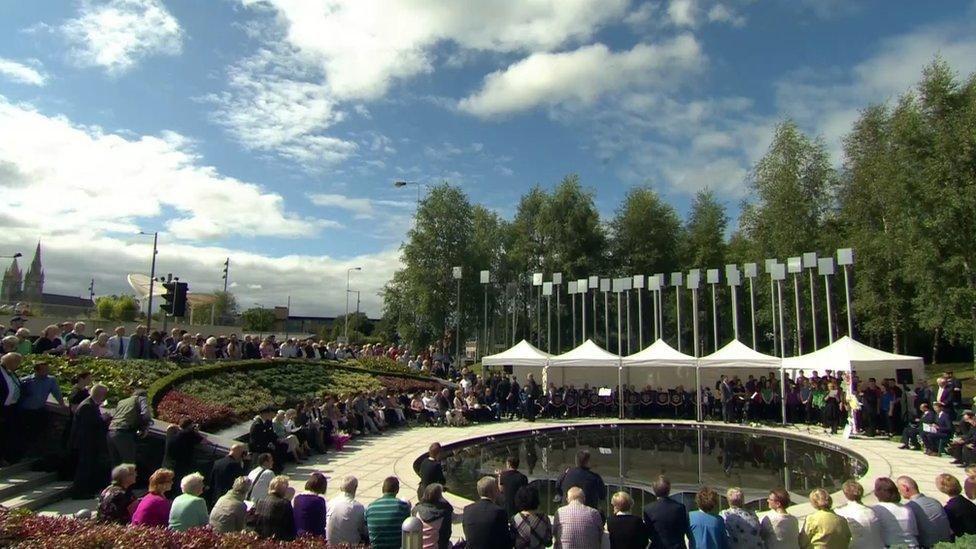Omagh bomb rescuers: Memories 20 years on
- Published
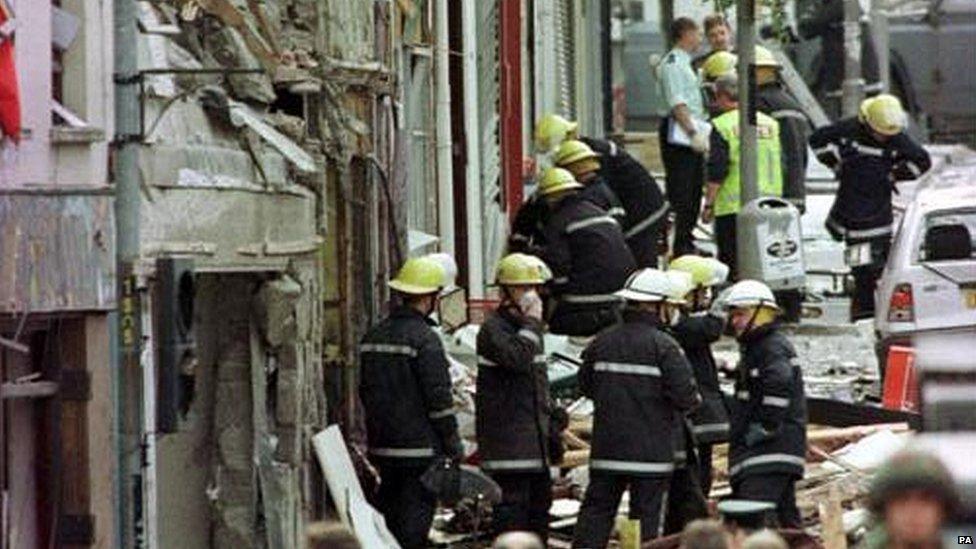
The emergency services were faced by destruction on an unprecedented scale in the aftermath of the bombing
One group of people experienced the Omagh bombing from a uniquely troubling viewpoint.
By 1998, Northern Ireland's emergency services had three decades' experience of dealing with the aftermath of Troubles' atrocities, but Omagh was on a different scale entirely.
Ambulance, fire and police personnel dug through the debris, ferried critically and seriously injured people to hospital, and transferred the bodies of the deceased to a temporary morgue.
They also had the difficult job of breaking tragic news to the victims' families.
These were the days before post-traumatic counselling and for many members of the rescue services the day of the bomb has left an indelible mark on their memory.
The firefighter's story
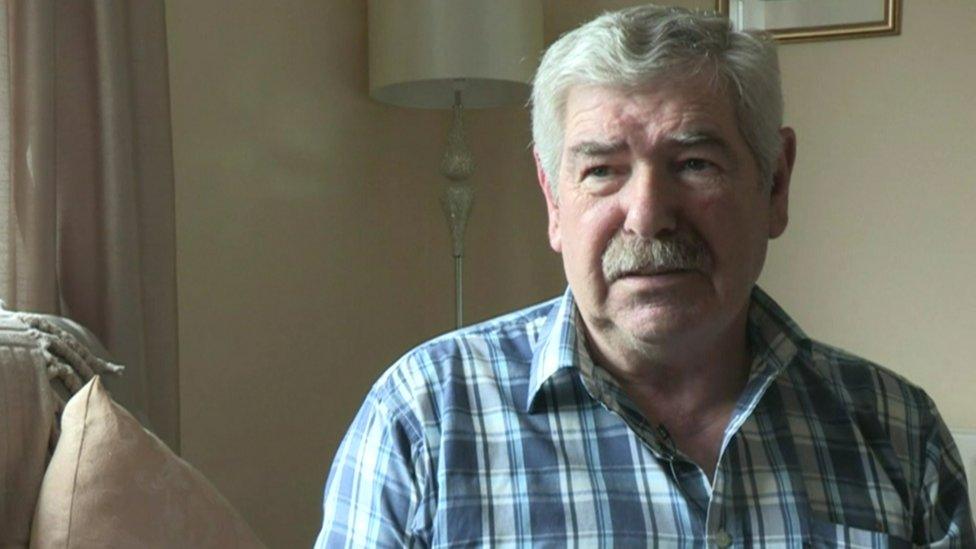
James Gallagher's fire crew was shocked as the enormity of the bombing became clear
In 1998, James Gallagher was a part-time firefighter based in the village of Fintona, nine miles from Omagh.
"We were called to Omagh using a familiar code word for a bomb," Mr Gallagher told the BBC.
"We were tasked by the police to search the right-hand side of the street because a lot of people were feared trapped or dead inside the shops," Mr Gallagher explained.
"We were not really expecting to find anyone.... however we did find several deceased members of the public who had taken shelter in shops or else had stumbled into shops to pass on."
The scale of the atrocity was slow to emerge:
"The number of casualties started at six, we thought 'my God what's going on here?', then we heard 12 and then it seemed to escalate after that."
But Mr Gallagher's traumatic day did not end when he arrived home.
He returned to Omagh with his brother, Michael, to search for Michael's son, Aidan, who was missing.
At about four in the morning they were called to a temporary morgue where James identified Aidan's body.
The paramedic's story
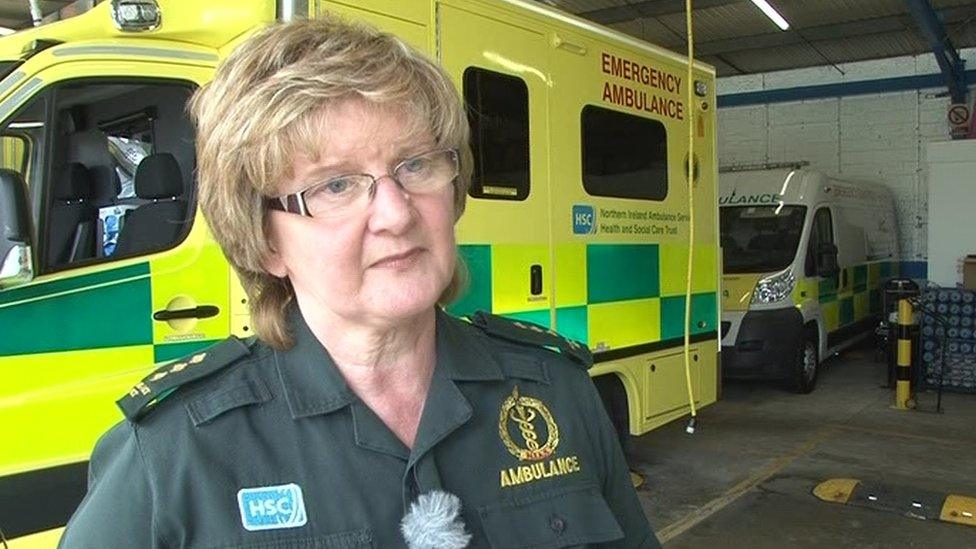
Ethel McClintock was struck by the stillness of the bomb scene
Ethel McClintock was a paramedic based in Strabane on the day of the bombing and was part of the first dispatched paramedic crew on the scene in Omagh.
She and her partner arrived in the town just 13 or 14 minutes after the explosion and were struck by the stillness of the scene - most of the injured had already been ferried to hospital by two other ambulance drivers, who went to Market Street when they heard the bomb go off.
"Our job really was to go from one unresponsive body that was on the street to the next one looking for signs of life," Ms McClintock said.
"We didn't know at the time that these people would be dead. We had hoped to find signs of life," she added.
Her crew spent several hours at this traumatic work before moving to the town's hospital to help transfer patients - they finished work in the early hours of the morning.
"The one overarching memory is the thought that one human being, or a number of human beings, could do this to others," Ms McClintock said.
The police officer's story
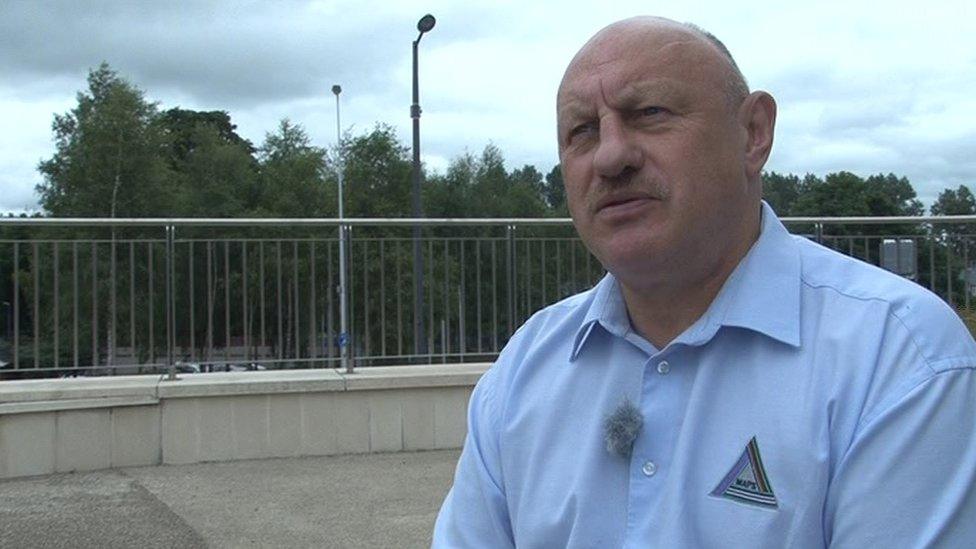
Stress put paid to Richard Scott's police career - he now helps others who suffered in the Troubles
Richard Scott was an off-duty police officer who rushed to the scene of the explosion:
"It was instinctive. The first thing you heard was the blast going off. We ran to the police station.
"We were told there that there had been an explosion there were lots of casualties. Instinctively we got first-aid kits, instinctively we ran down to the scene"
The events of that August day have left an indelible mark on him:
"The one abiding memory I have, and I'll never ever lose it, was when we lifted the deceased...
"We lifted the deceased and we gave them some sanctity in an alleyway. That started with one.
"By the time we were finished that alleyway was full."
Mr Scott is critical of the lack of support offered to police officers after traumatic events.
"I had to muddle on until I just physically couldn't do any more and I had to put my hands up and say 'look, I can't' - so I had to finish my career," he said.
The ex-police officer now works for a charity that helps former members of the security forces who served during the Troubles
- Published15 August 2018
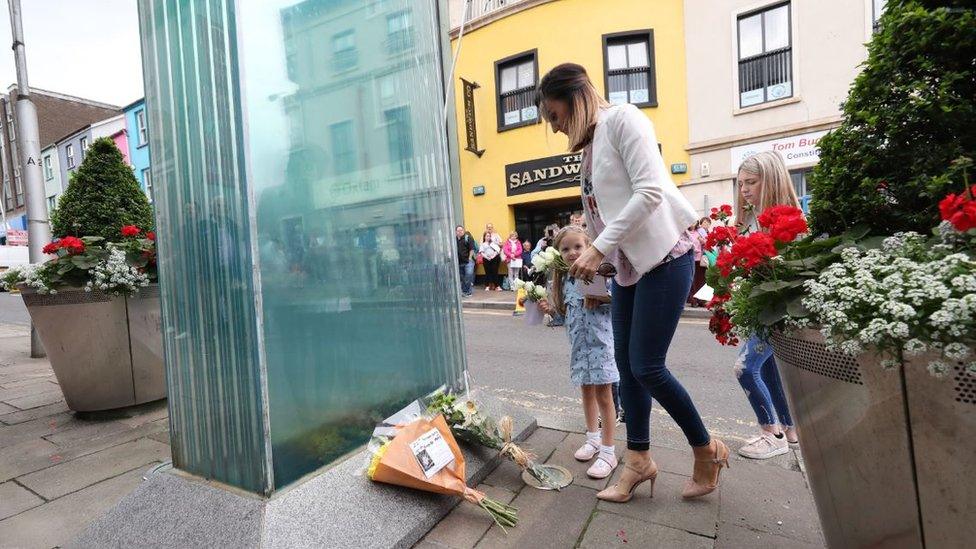
- Published12 August 2018
